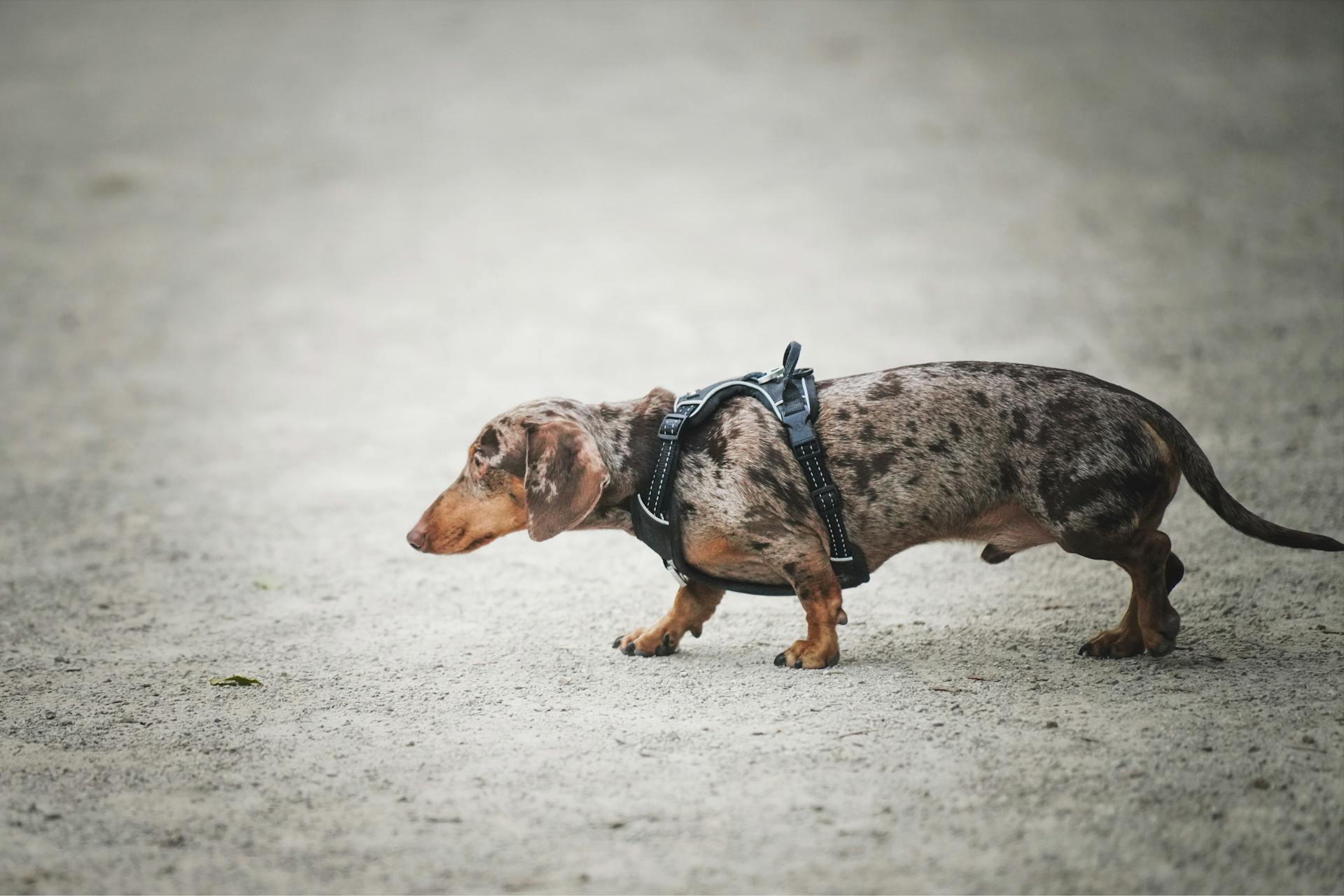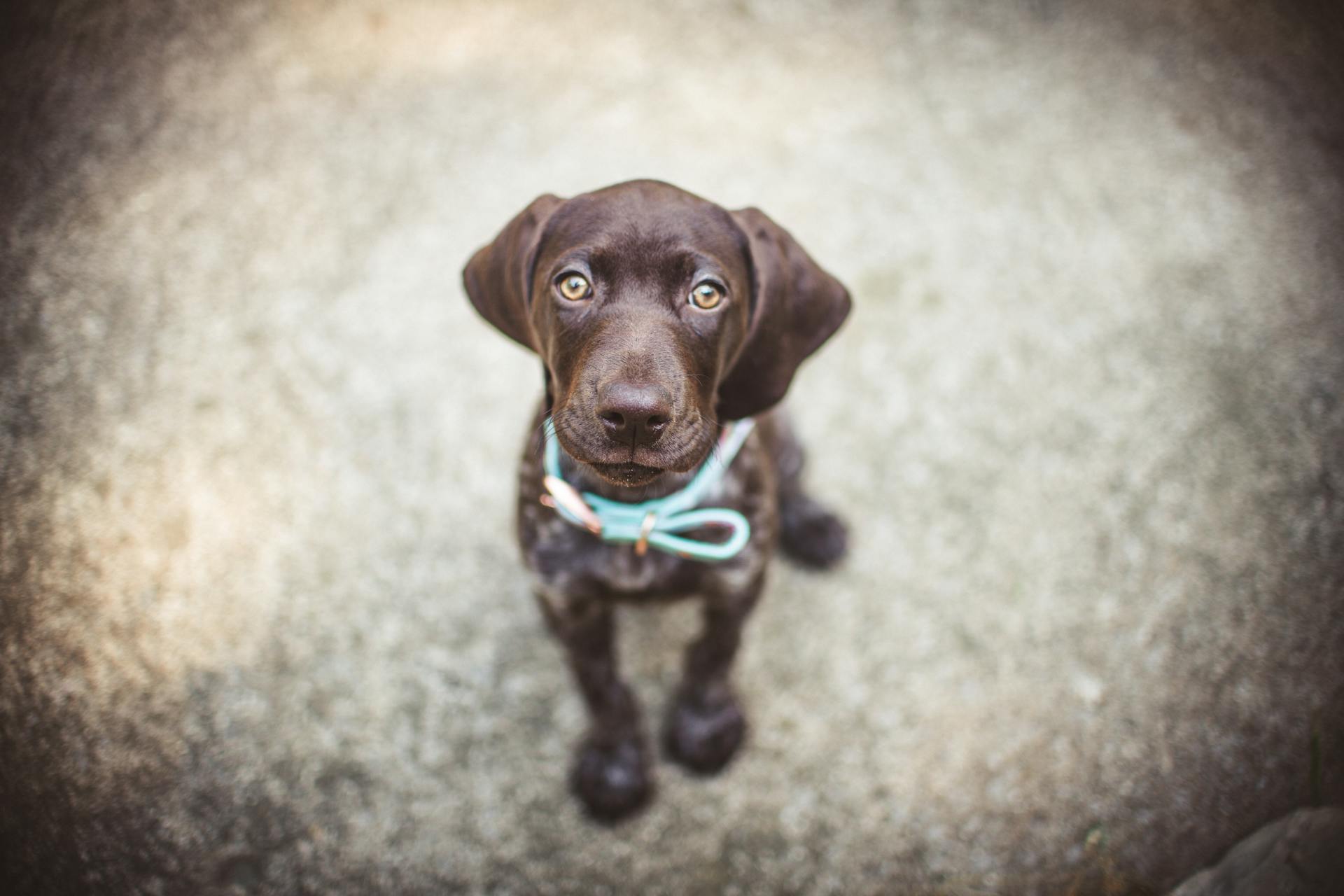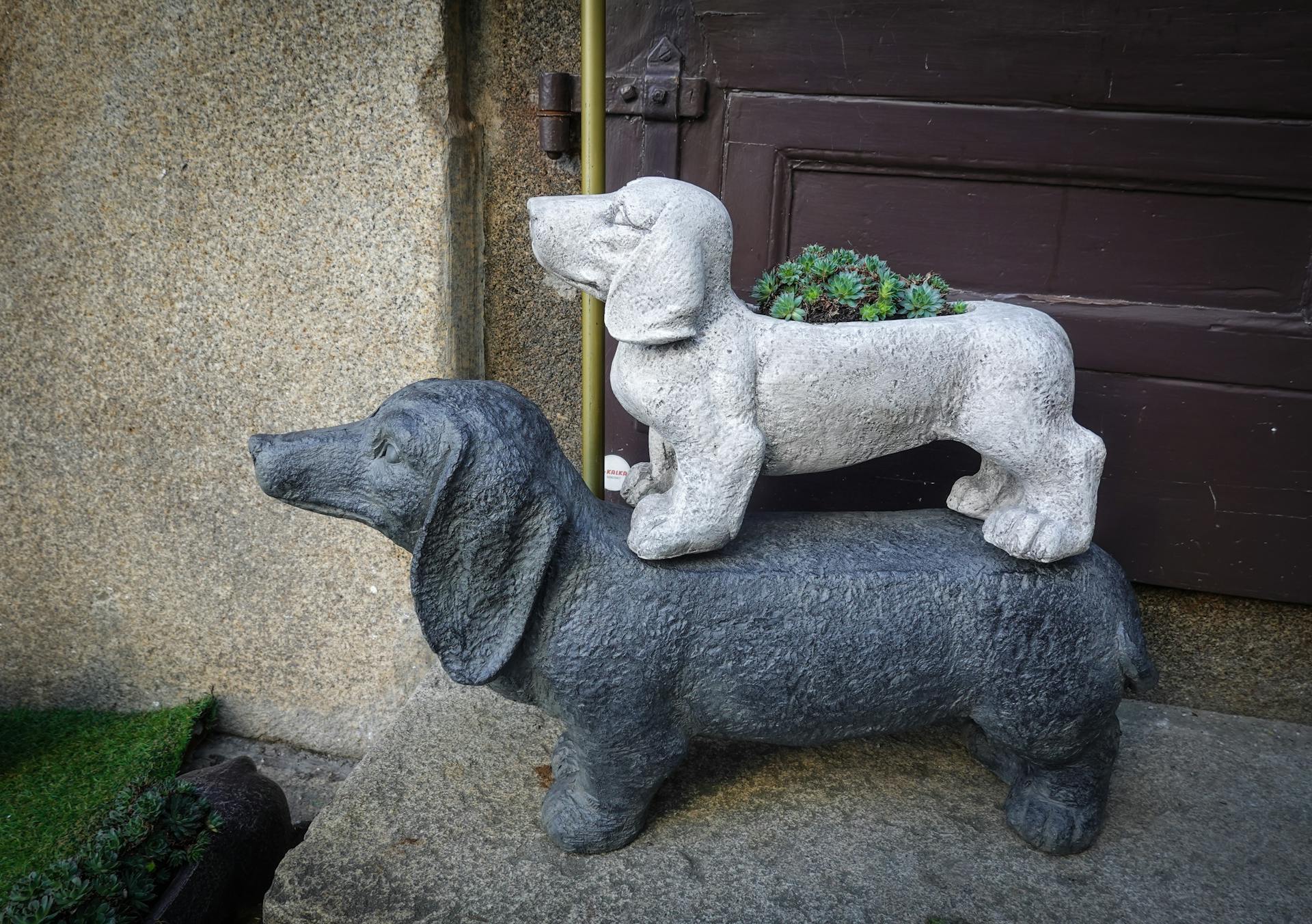
Mini Dachshunds are natural-born hunters, bred to track badgers and other small game in Germany. Their short stature and long bodies make them perfect for navigating tight spaces and following scents underground.
Their keen sense of smell and athleticism allow them to excel in hunting, but they can be challenging to train. With patience and consistency, you can teach your Mini Dachshund to be a skilled hunting companion.
Mini Dachshunds typically weigh between 11 and 16 pounds and stand about 6-9 inches tall at the shoulder. This compact size makes them ideal for hunting in dense underbrush and narrow tunnels.
Are Dachshunds Good for Hunting?
Dachshunds have a long history of hunting, with the standard-sized Dachshund originally used for badger hunting. They were later used for smaller game like rabbit, squirrel, and prairie dogs.
In the US and Europe, hunters are now using both Miniature and Standard Dachshunds for badger hunting. The Western part of the US even uses Dachshunds to track down wounded deer.
Readers also liked: Dachshunds Badger Hunting
Hunters use a special tracking collar to help locate their Dachshunds while they're underground. This collar provides a more accurate location to dig down and flush out the hunted animal.
Miniature Dachshunds can be used to track and chase down a fox, but Standard Dachshunds can also be used to fight and defend if needed.
On a similar theme: Shock Collar for Hunting Dogs
Dachshund Characteristics
They're short, but they're mighty. Dachshunds typically weigh between 16 and 32 pounds.
One of the most distinctive features of the Dachshund breed is their long, narrow body. This is due to their original purpose as hunting dogs.
Their short legs allow them to follow game into tight spaces. This was especially useful for hunting badgers and rabbits.
Dachshunds are known for their intelligence and trainability. They're highly responsive to positive reinforcement training methods.
Their short coats require minimal grooming. A weekly brushing is usually sufficient to keep their coat clean and healthy.
Their loyalty and affection towards their family is unmatched. They make great companions for active families.
Their energy level is moderate, requiring daily exercise to stay happy and healthy.
History and Background
Mini dachshunds have a rich history that dates back to the 16th century in Germany, where they were bred to hunt badgers and other small game.
Their original purpose was to flush out badgers from their underground dens, and their short stature allowed them to pursue prey into tight spaces.
The name "dachshund" literally translates to "badger dog" in German, reflecting their original hunting purpose.
Mini dachshunds were bred to be smaller versions of the standard dachshund, weighing around 11 pounds or less.
Their compact size and energetic personality made them ideal for hunting small game in dense forests and underbrush.
Despite their small size, mini dachshunds are known for their bold and fearless nature, which served them well in their hunting days.
Their short coats require minimal grooming, making them a low-maintenance companion for hunters on the go.
Broaden your view: Irish Wolfhound Average Weight
Training and Behavior
Dachshunds have an inherent desire to chase, track, and capture prey.
Providing regular exercise is crucial for mini dachshunds, as it satisfies their energy levels and hunting instincts.
Dachshunds are a bundle of energy, and they need to be physically and mentally engaged to prevent boredom and destructive behavior.
A daily walk around the block is not enough; mini dachshunds need a more stimulating environment that challenges their hunting instincts.
Keeping mini dachshunds mentally stimulated is just as important as providing physical exercise, as it helps to prevent unwanted behaviors like digging and barking.
Unleashing a mini dachshund's inner hunter requires patience, consistency, and positive reinforcement training.
Check this out: Do Long Haired Dachshunds Need Haircuts
Exercise and Care
Mini dachshunds are prone to back problems due to their long, narrow bodies, so they need regular exercise to maintain a healthy weight and strong muscles.
To prevent injury, it's essential to keep exercise sessions short and fun, with plenty of breaks in between.
Mini dachshunds can get enough exercise with short walks of 20-30 minutes, two to three times a day.
Their small size means they can get tired easily, so it's crucial to pay attention to their body language and take a break if they seem exhausted.
Explore further: Why Are Dachshunds so Clingy
Mini dachshunds can also benefit from playtime in a securely fenced area, where they can run around and get some exercise without worrying about escaping or getting injured.
Their short legs can make them prone to overexertion, so it's essential to keep an eye on them during playtime and intervene if necessary.
Dachshund as a Companion
Dachshunds are natural companions due to their loyal and affectionate nature. They thrive on human interaction and can become Velcro dogs, sticking close to their owners.
They are relatively small in size, typically weighing between 16 and 32 pounds, making them a great fit for apartment living or small homes.
Their short stature also means they require regular exercise to maintain a healthy weight and prevent back problems. A daily walk of at least 30 minutes is recommended.
Their loyalty and affection towards their family are unmatched, making them a popular choice for families with children. However, early socialization is key to ensure they get along with kids.
Their hunting instincts can sometimes make them wary of strangers, so it's essential to introduce them to new people and environments gradually.
Frequently Asked Questions
Are dachshunds good deer tracking dogs?
Dachshunds can be a good choice for bowhunters who need a tracking companion for short, occasional hunts, but may not be suitable for extensive tracking due to their limited endurance. They're best for tracking wounded deer in a casual, low-stress setting.
Sources
Featured Images: pexels.com


